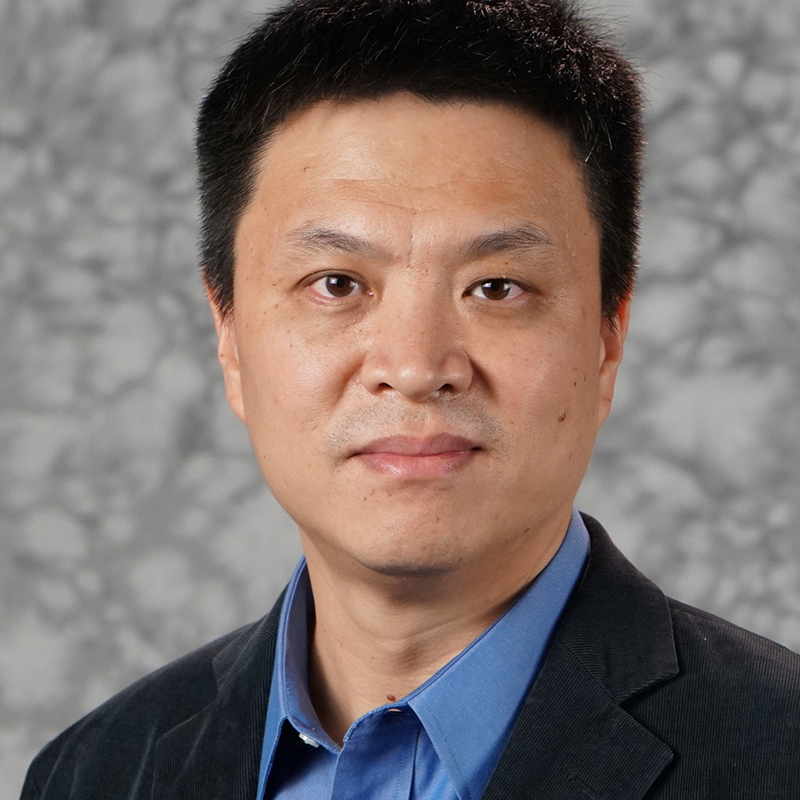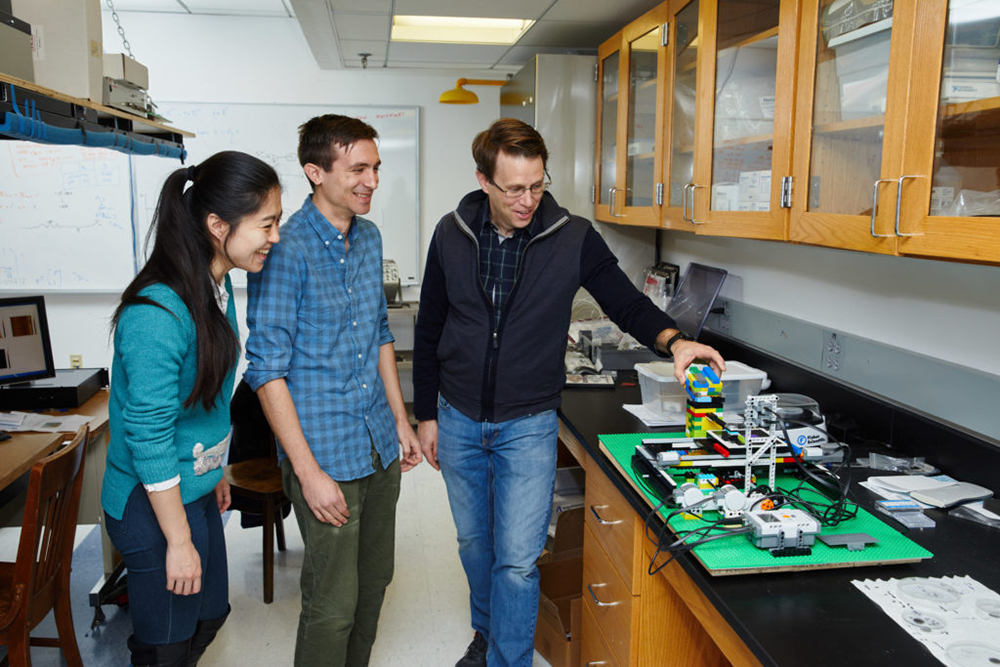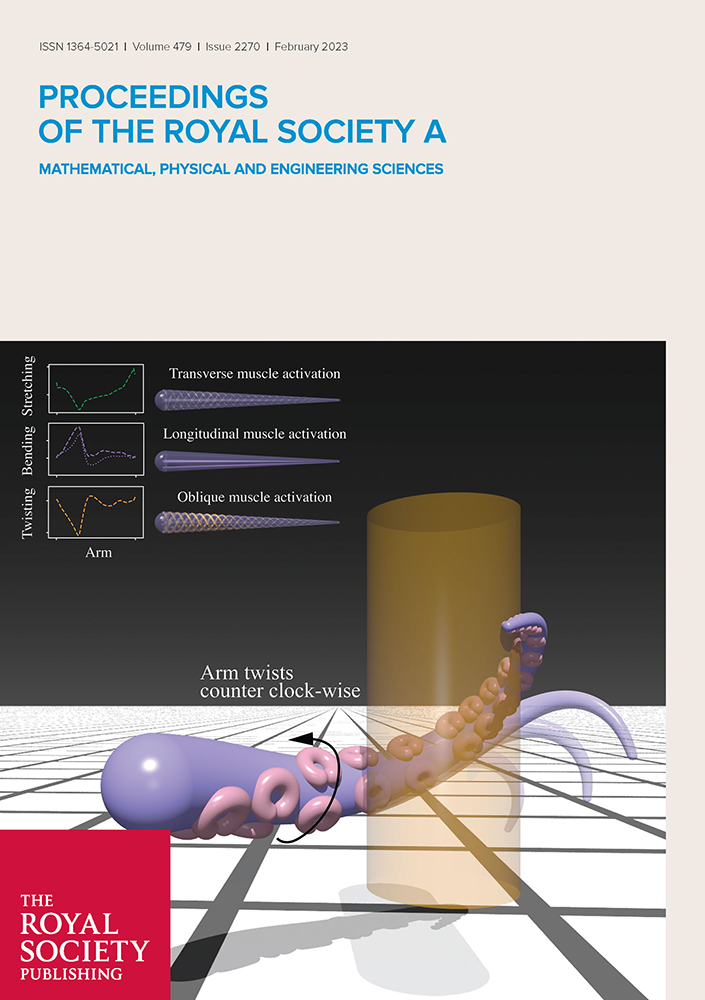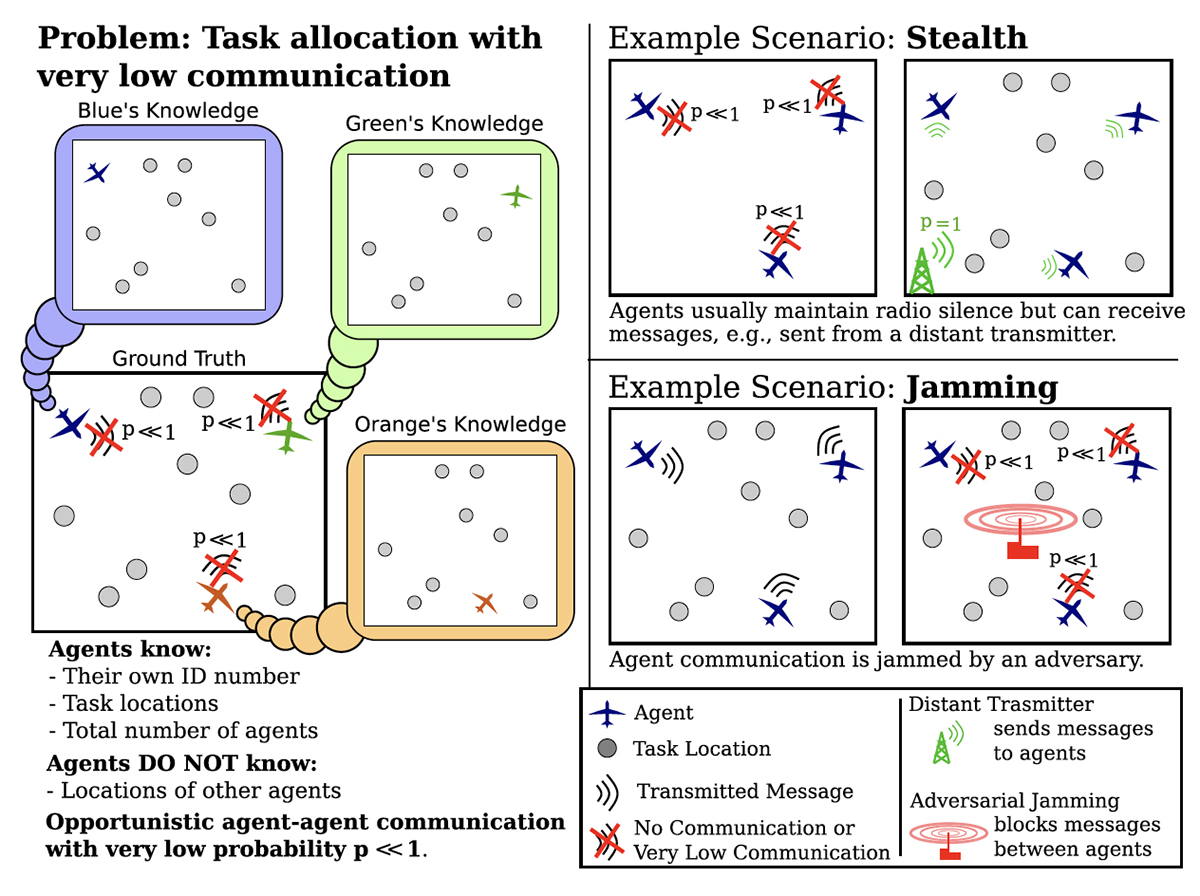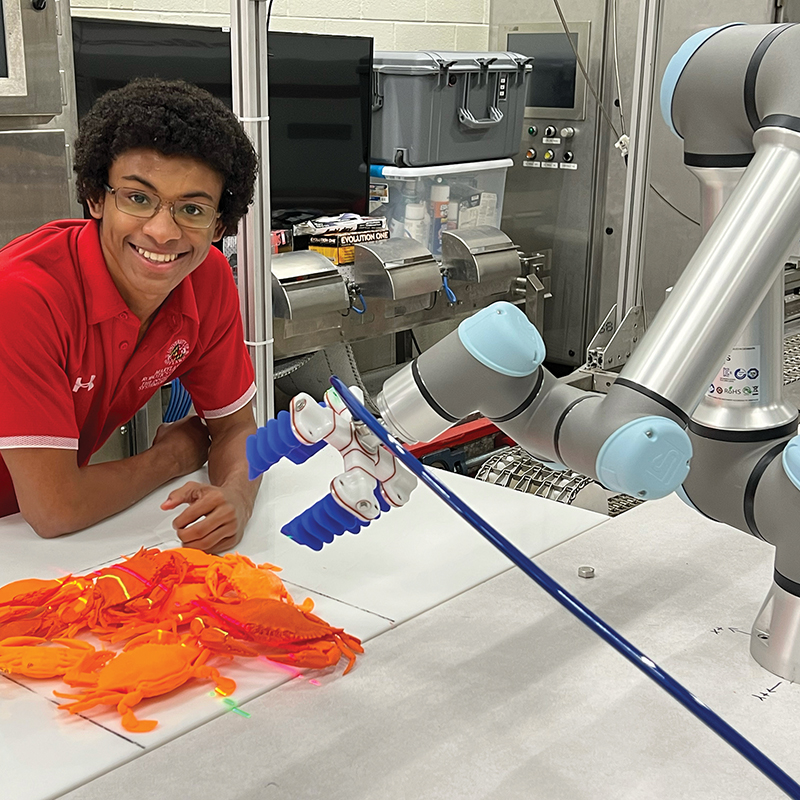News Story
$100,000 investment from Amazon to power Clark School initiatives in diversity, robotics research and education
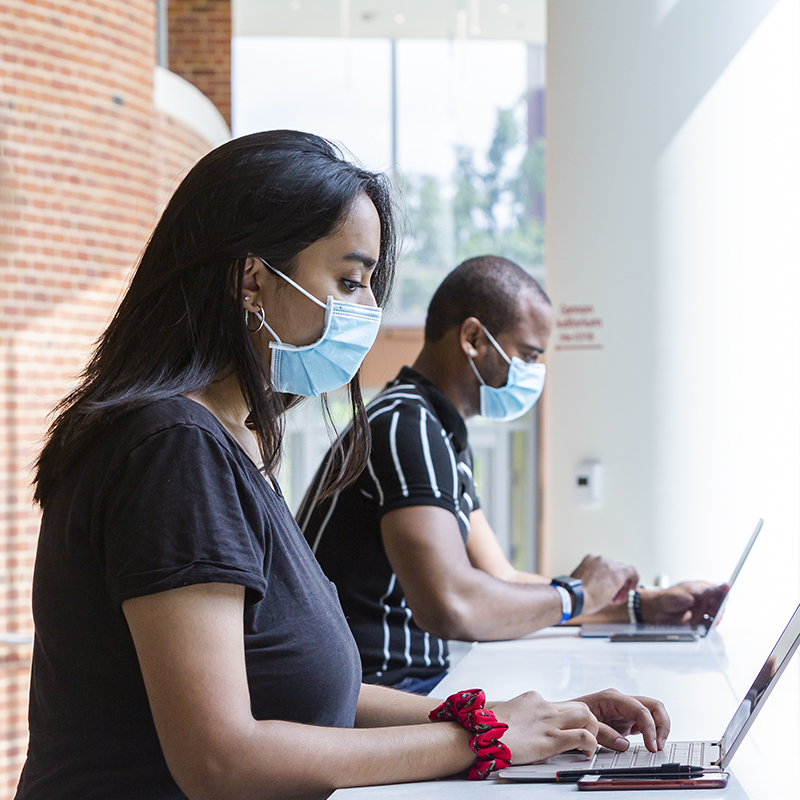
The A. James Clark School of Engineering and Amazon have announced the Amazon Lab126 Robotics and Diversity Initiative, a mutually beneficial, strategic collaboration to advance diversity and robotics research and education. It is the first Amazon–University of Maryland investment to provide fellowships aimed at increasing diversity, and the university’s first collaboration specifically with Amazon Lab126.
Amazon has invested $100,000 in the initiative for academic year 2020-2021. This includes funding for two Ph.D. fellowships in robotics, for the Clark School’s Center for Minorities in Science and Engineering (CMSE), for the expansion of a capstone course in autonomous robotics, and for the University of Maryland’s chapters of the Black Engineers Society and the Society of Professional Hispanic Engineers.
“We’re excited for this collaboration with the Clark School that will increase diversity in the field of engineering,” said Gregg Zehr, president of Amazon Lab126. “I so look forward to seeing what these young new inventors will build!”
Amazon Lab126 is Amazon’s research and development team for consumer electronic devices, software and operations such as the Fire, Kindle, Amazon Fire TV, and Amazon Echo. The lab is committed to advancing robotics through both cutting-edge research and increasing the pipeline for underrepresented minority talent entering the field.
The Ph.D. fellowships are a first for the Maryland Robotics Center (MRC), a Clark School research and education unit within the Institute for Systems Research that advances robotic systems and their underlying component technologies for a wide variety of applications. Its director, Professor Derek Paley (AE/ISR), has worked to expand financial support for robotics students and increase the number of women and underrepresented minority students studying in the field. With Amazon expanding its diversity commitment in robotics, the Clark School corporate relations team and Amazon Lab126’s Kailyn Cage—a 2018 UMD alumna with a Ph.D. in Reliability Engineering and a connection to CMSE—helped to make the investment and the scholarships possible.
“Amazon Lab126 has shown a tremendous commitment to supporting diversity through this partnership,” Paley says. “These fellowships will give deserving Ph.D. students the resources they need to to conduct state-of-the-art robotics research while completing their degrees.”
Led by Distinguished University Professor Dinesh Manocha (ECE/UMIACS/CS), the fellowships will support research in automatic robotic navigation for crowded public settings, including mobile robotics, robot motion planning, computer vision, pedestrian tracking, and machine learning.
Estefany Carrillo and Sara Honarvar are the first recipients of the fellowships. Carrillo is a third-year Aerospace Engineering Ph.D. student whose research interests are in dynamics and control for robotics systems. She is advised by Assistant Professor Huan Xu (AE/ISR). Honarvar is a second-year Mechanical Engineering Ph.D. student who conducts research in the Collaborative Controls and Robotics Laboratory. She is advised by Assistant Professor Yancy Diaz-Mercado (ME).
“As one of the few female Hispanic students pursuing an Electrical Engineering degree as an undergraduate and then a doctoral degree in Aerospace Engineering, I was well aware of the importance of someone like me succeeding,” Carrillo says. “I truly believe that increasing participation of people from diverse backgrounds in STEM fields can lead to innovative ideas that approach problems from different perspectives.”
The partnership also provides critical funding for CMSE, whose mission is committed to the recruitment, retention, development, and graduation of underrepresented minority pre-college, undergraduate, and graduate students in engineering. CMSE’s important goal has become even more crucial in this time of heightened awareness.
The UMD chapters of the Black Engineers Society and the Society of Professional Hispanic Engineers are both receiving funds from the partnership. The Black Engineers Society is committed to recruiting, retaining and graduating African American students to STEM fields. They provide peer-to-peer support and resources to help underrepresented students in the Clark School succeed through leadership opportunities, networking events and skill development. The Society of Professional Hispanic Engineers seeks to empower the Hispanic community. Their programs recruit and retain Latinx students in STEM studies by supporting professional growth, developing social responsibility, and ensuring academic support for students and members while giving back to the community through volunteer events and outreach.
Additionally, the partnership provides capstone course funding for the expansion of Professor Gil Blankenship’s (ECE) Autonomous Robotics class, which uses Amazon Echo devices and other tools to build autonomous mobile companion robots that can understand simple voice commands. The funds will allow for the purchase of additional robots and upgrades that will make a significant impact, as students adjust to working in teams in a virtual environment. Funding will make it possible for each student to have a robot and the robots can be collectively programmed to perform the same task in three different locations.
“Engineers are problem solvers and the builders of our modern world. Having diverse teams of engineers ensures the solutions we’re innovating, from smarter robots to stronger bridges and more responsive prosthetic limbs, serve our communities equally,” said Clark School Interim Dean Robert Briber. “We’re excited and grateful to work with Amazon to advance diversity in our robotics programs, and we’re looking forward to bringing more equity and justice to communities through smart engineering design.”
Published October 12, 2020

